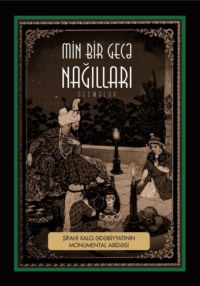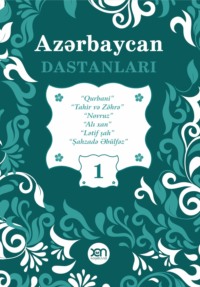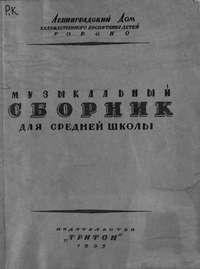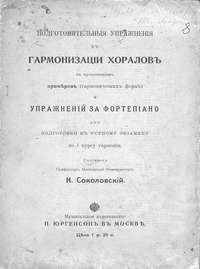 полная версия
полная версияA plain and literal translation of the Arabian nights entertainments, now entituled The Book of the Thousand Nights and a Night, Volume 2 (of 17)
The Caliph forgave him and bade carry the damsel to the city-palace, where he set apart for her an apartment and appointed slaves to serve her, saying to her, "Know that we have sent thy lord to be Sultan in Bassorah and, Almighty Allah willing, we will dispatch him the dress of investiture and thee with it." Meanwhile, Nur al-Din Ali ceased not travelling till he reached Bassorah, where he repaired to the Sultan's palace and he shouted a loud shout.67 The Sultan heard him and sent for him; and when he came into his presence, he kissed the ground between his hands and, producing the letter, presented it to him. Seeing the superscription in the writing of the Commander of the Faithful, the Sultan rose to his feet and kissed it three times; and after reading it said, "I hear and I obey Allah Almighty and the Commander of the Faithful!" Then he summoned the four Kazis68 and the Emirs and was about to divest himself of the rule royal, when behold, in came Al-Mu'in bin Sawi. The Sultan gave him the Caliph's letter and he read it, then tore it to pieces and putting it into his mouth, chewed it69 and spat it out. "Woe to thee," quoth the Sultan (and indeed he was sore angered); "what induced thee to do this deed?" "Now by thy life! O our lord the Sultan," replied Mu'in, "this man hath never foregathered with the Caliph nor with his Wazir; but he is a gallows-bird, a limb of Satan, a knave who, having come upon a written paper in the Caliph's hand, some idle scroll, hath made it serve his own end. The Caliph would surely not send him to take the Sultanate from thee without the imperial autograph70 and the diploma of investiture, and he certainly would have despatched with him a Chamberlain or a Minister. But he hath come alone and he never came from the Caliph, no, never! never! never!" "What is to be done?" asked the Sultan, and the Minister answered, "Leave him to me and I will take him and keep him away from thee, and send him in charge of a Chamberlain to Baghdad-city. Then, if what he says be sooth, they will bring us back autograph and investiture; and if not, I will take my due out of this debtor." When the Sultan heard the Minister's words he said, "Hence with thee and him too." Al-Mu'in took trust of him from the King and, carrying him to his own house, cried out to his pages who laid him flat and beat him till he fainted. Then he let put upon his feet heavy shackles and carried him to the jail, where he called the jailor, one Kutayt,71 who came and kissed the ground before him. Quoth the Wazir, "O Kutayt, I wish thee to take this fellow and throw him into one of the underground cells72 in the prison and torture him night and day." "To hear is to obey," replied the jailor and, taking Nur al-Din into the prison, locked the door upon him. Then he gave orders to sweep a bench behind the door and, spreading on it a sitting-rug and a leather-cloth, seated Nur al-Din thereon and loosed his shackles and entreated him kindly. The Wazir sent every day enjoining the jailor to beat him, but he abstained from this, and so continued to do for forty days. On the forty-first day there came a present from the Caliph; which when the Sultan saw, it pleased him and he consulted his Ministers on the matter, when one of them said, "Perchance this present was for the new Sultan." Cried Al-Mu'in, "We should have done well had we put him to death at his first coming;" and the Sultan cried "By Allah, thou hast reminded me of him! Go down to the prison and fetch him, and I will strike off his head." "To hear is to obey," replied Al-Mu'in: then he stood up and said, "I will make proclamation in the city: – Whoso would solace himself with seeing the beheading of Nur al-Din bin al-Fazl bin Khakan, let him repair to the palace! So follower and followed, great and small will flock to the spectacle, and I shall heal my heart and harm my foe." "Do as thou wilt," said the Sultan. The Wazir went off (and he was glad and gay), and ordered the Chief of Police to make the aforementioned proclamation. When the people heard the crier, they all sorrowed and wept, even the little ones at school and the traders in their shops; and some strove to get places for seeing the sight, whilst others went to the prison with the object of escorting him thence. Presently, the Wazir came with ten Mamelukes to the jail and Kutayt the jailor asked him, "Whom seekest thou, O our lord the Wazir?"; whereto he answered, "Bring me out that gallows-bird." But the jailor said, "He is in the sorriest of plights for the much beating I have given him." Then he went into the prison and found Nur al-Din repeating these verses: —
Who shall support me in calamities, ✿ When fail all cures and greater cares arise?Exile hath worn my heart, my vitals torn; ✿ The World to foes hath turned my firm allies.O folk, will not one friend amidst you all ✿ Wail o'er my woes, and cry to hear my cries?Death and its agonies seem light to me, ✿ Since life has lost all joys and jollities:O Lord of Mustafá,73 that Science-sea ✿ Sole Intercessor, Guide all-ware, all-wise!I pray thee free me and my fault forego, ✿ And from me drive mine evil and my woe.The jailor stripped off his clean clothes and, dressing him in two filthy vests, carried him to the Wazir. Nur al-Din looked at him and saw it was his foe that sought to compass his death; so he wept and said, "Art thou, then, so secure against the World? Hast thou not heard the saying of the poet: —
Kisras and Cæsars in a bygone day ✿ Stored wealth; where is it, and ah! where are they?""O Wazir," he continued, "know that Allah (be He extolled and exalted!) will do whatso He will!" "O Ali," replied he, "thinkest thou to frighten me with such talk? I mean this very day to smite thy neck despite the noses of the Bassorah folk and I care not; let the days do as they please; nor will I turn me to thy counsel but rather to what the poet saith: —
Leave thou the days to breed their ban and bate, ✿ And make thee strong t' upbear the weight of Fate.And also how excellently saith another: —
Whoso shall see the death-day of his foe, ✿ One day surviving, wins his bestest wish."Then he ordered his attendants to mount Nur al-Din upon the bare back of a mule; and they said to the youth (for truly it was irksome to them), "Let us stone him and cut him down though our lives go for it." But Nur al-Din said to them, "Do not so: have ye not heard the saying of the poet? —
Needs must I bear the term by Fate decreed, ✿ And when that day be dead needs must I die:If lions dragged me to their forest-lair, ✿ Safe should I live till draw my death-day nigh."Then they proceeded to proclaim before Nur al-Din, "This is the least of the retribution for him who imposeth upon Kings with forgeries." And they ceased not parading him round about Bassorah, till they made him stand beneath the palace-windows and set him upon the leather of blood,74 and the sworder came up to him and said, "O my lord, I am but a slave commanded in this matter: an thou have any desire, tell it me that I may fulfil it, for now there remaineth of thy life only so much as may be till the Sultan shall put his face out of the lattice." Thereupon Nur al-Din looked to the right and to the left, and before him and behind him and began improvising: —
The sword, the sworder and the blood-skin waiting me I sight, ✿ And cry, Alack, mine evil fate! ah, my calamity!How is't I see no loving friend with eye of sense or soul? ✿ What! no one here? I cry to all: will none reply to me?The time is past that formed my life, my death term draweth nigh, ✿ Will no man win the grace of God showing me clemency;And look with pity on my state, and clear my dark despair, ✿ E'en with a draught of water dealt to cool death's agony?The people fell to weeping over him; and the headsman rose and brought him a draught of water; but the Wazir sprang up from his place and smote the gugglet with his hand and broke it: then he cried out at the executioner and bade him strike off Nur al-Din's head. So he bound the eyes of the doomed man and folk clamoured at the Wazir and loud wailings were heard and much questioning of man and man. At this moment behold, rose a dense dust-cloud filling sky and wold; and when the Sultan, who was sitting in the palace, descried this, he said to his suite, "Go and see what yon cloud bringeth: " Replied Al-Mu'in, "Not till we have smitten this fellow's neck;" but the Sultan said, "Wait ye till we see what this meaneth." Now the dust-cloud was the dust of Ja'afar the Barmecide, Wazir to the Caliph, and his host; and the cause of his coming was as follows. The Caliph passed thirty days without calling to mind the matter of Nur al-Din Ali,75 and none reminded him of it, till one night, as he passed by the chamber of Anis al-Jalis, he heard her weeping and singing with a soft sweet voice these lines of the poet: —
In thought I see thy form when farthest far or nearest near; ✿ And on my tongue there dwells a name which man shall ne'er unhear.Then her weeping redoubled; when lo! the Caliph opened the door and, entering the chamber, found Anis al-Jalis in tears. When she saw him she fell to the ground and kissing his feet three times repeated these lines: —
O fertile root and noble growth of trunk; ✿ Ripe-fruitful branch of never sullied race;I mind thee of what pact thy bounty made; ✿ Far be't from thee thou should'st forget my case!Quoth the Caliph, "Who art thou?" and she replied, "I am she whom Ali bin Khakan gave thee in gift, and I wish the fulfilment of thy promise to send me to him with the robe of honour; for I have now been thirty days without tasting the food of sleep." Thereupon the Caliph sent for Ja'afar and said to him, "O Ja'afar, 'tis thirty days since we have had news of Nur al-Din bin Khakan, and I cannot but suppose that the Sultan hath slain him; but, by the life of my head and by the sepulchres of my forefathers, if aught of foul play hath befallen him, I will surely make an end of him who was the cause of it, though he be the dearest of all men to myself! So I desire that thou set out for Bassorah within this hour and bring me tidings of my cousin, King Mohammed bin Sulayman al-Zayni, and how he hath dealt with Nur al-Din Ali bin Khakan;" adding, "If thou tarry longer on the road than shall suffice for the journey, I will strike off thy head. Furthermore, do thou tell the son of my uncle the whole story of Nur al-Din, and how I sent him with my written orders; and if thou find, O my cousin,76 that the King hath done otherwise than as I commanded, bring him and the Wazir Al-Mu'in bin Sawi to us in whatsoever guise thou shalt find them."77 "Hearing and obedience," replied Ja'afar and, making ready on the instant, he set out for Bassorah where the news of his coming had foregone him and had reached to the ears of King Mohammed. When Ja'afar arrived and saw the crushing and crowding of the lieges, he asked, "What means all this gathering?" so they told him what was doing in the matter of Nur al-Din; whereupon he hastened to go to the Sultan and saluting him, acquainted him with the cause why he came and the Caliph's resolve, in case of any foul play having befallen the youth, to put to death whoso should have brought it about. Then he took into custody the King and the Wazir and laid them in ward and, giving order for the release of Nur al-Din Ali, enthroned him as Sultan in the stead of Mohammed bin Sulayman. After this Ja'afar abode three days in Bassorah, the usual guest-time, and on the morning of the fourth day, Nur al-Din Ali turned to him and said, "I long for the sight of the Commander of the Faithful." Then said Ja'afar to Mohammed bin Sulayman, "Make ready to travel, for we will say the dawn-prayer and mount Baghdad-wards;" and he replied, "To hear is to obey." Then they prayed and they took horse and set out, all of them, carrying with them the Wazir, Al-Mu'in bin Sawi, who began to repent him of what he had done. Nur al-Din rode by Ja'afar's side and they stinted not faring on till they arrived at Baghdad, the House of Peace, and going in to the Caliph told him how they had found Nur al-Din nigh upon death. Thereupon the Caliph said to the youth, "Take this sword and smite with it the neck of thine enemy." So he took the sword from his hand and stepped up to Al-Mu'in who looked at him and said, "I did according to my mother's milk, do thou according to thine."78 Upon this Nur al-Din cast the sword from his hand and said to the Caliph, "O Commander of the Faithful, he hath beguiled me with his words;" and he repeated this couplet: —
By craft and sleight I snared him when he came; ✿ A few fair words aye trap the noble-game!"Leave him then," cried the Caliph and, turning to Masrur said, "Rise thou and smite his neck." So Masrur drew his sword and struck off his head. Then quoth the Caliph to Nur al-Din Ali, "Ask a boon of me." "O my lord," answered he, "I have no need of the Kingship of Bassorah; my sole desire is to be honoured by serving thee and by seeing thy countenance." "With love and gladness," said the Caliph. Then he sent for the damsel, Anis al-Jalis, and bestowed plentiful favours upon them both and gave them one of his palaces in Baghdad, and assigned stipends and allowances, and made Nur al-Din Ali bin Fazl bin Khakan, one of his cup-companions; and he abode with the Commander of the Faithful enjoying the pleasantest of lives till death overtook him. "Yet (continued Shahrazad) is not his story in any wise more wondrous than the history of the merchant and his children." The King asked "And what was that?" and Shahrazad began to relate the
TALE OF GHANIM BIN AYYUB 79 , THE DISTRAUGHT, THE THRALL O' LOVE
It hath reached me, O auspicious King, that in times of yore and in years and ages long gone before, there lived in Damascus a merchant among the merchants, a wealthy man who had a son like the moon on the night of his fullness80 and withal sweet of speech, who was named Ghanim bin 'Ayyúb surnamed the Distraught, the Thrall o' Love. He had also a daughter, own sister to Ghanim, who was called Fitnah, a damsel unique in beauty and loveliness. Their father died and left them abundant wealth, – And Shahrazad perceived the dawn of day and ceased to say her permitted say.
Now when it was the Thirty-ninth Night,She said, it hath reached me, O auspicious King, that the merchant left his two children abundant wealth and amongst other things an hundred loads81 of silks and brocades, musk-pods and mother o' pearl; and there was written on every bale, "This is of the packages intended for Baghdad," it having been his purpose to make the journey thither, when Almighty Allah took him to Himself, which was in the time of the Caliph Harun al-Rashid. After a while his son took the loads and, bidding farewell to his mother and kindred and townsfolk, went forth with a company of merchants, putting his trust in Allah Almighty, who decreed him safety, so that he arrived without let or stay at Baghdad. There he hired for himself a fair dwelling house which he furnished with carpets and cushions, curtains and hangings; and therein stored his bales and stabled his mules and camels, after which he abode a while resting. Presently the merchants and notables of Baghdad came and saluted him, after which he took a bundle containing ten pieces of costly stuffs, with the prices written on them, and carried it to the merchants' bazar, where they welcomed and saluted him and showed him all honour; and, making him dismount from his beast, seated him in the shop of the Syndic of the market, to whom he delivered the package. He opened it and drawing out the pieces of stuff, sold them for him at a profit of two dinars on every dinar of prime cost. At this Ghanim rejoiced and kept selling his silks and stuffs one after another, and ceased not to do on this wise for a full year. On the first day of the following year he went, as was his wont, to the Exchange which was in the bazar, but found the gate shut; and enquiring the reason was told, "One of the merchants is dead and all the others have gone to follow his bier,82 and why shouldst thou not win the meed of good deeds by walking with them?"83 He replied "Yes," and asked for the quarter where the funeral was taking place, and one directed him thereto. So he purified himself by the Wuzu-ablution84 and repaired with the other merchants to the oratory, where they prayed over the dead, then walked before the bier to the burial-place, and Ghanim, who was a bashful man, followed them being ashamed to leave them. They presently issued from the city, and passed through the tombs until they reached the grave where they found that the deceased's kith and kin had pitched a tent over the tomb and had brought thither lamps and wax-candles. So they buried the body and sat down while the readers read out and recited the Koran over the grave; and Ghanim sat with them, being overcome with bashfulness and saying to himself "I cannot well go away till they do." They tarried listening to the Koranic perlection till nightfall, when the servants set supper and sweetmeats85 before them and they ate till they were satisfied; then they washed their hands and again took their places. But Ghanim's mind was preoccupied with his house and goods, being in fear of robbers, and he said to himself, "I am a stranger here and supposed to have money: if I pass the night abroad the thieves will steal my money-bags and my bales to boot." So when he could no longer control his fear he arose and left the assembly, having first asked leave to go about some urgent business; and following the signs of the road he soon came to the city-gate. But it was midnight and he found the doors locked and saw none going or coming nor heard aught but the hounds baying and the wolves howling. At this he exclaimed, "There is no Majesty and there is no Might save in Allah! I was in fear for my property and came back on its account, but now I find the gate shut and I am in mortal fear for my life!" Then he turned back and, looking out for a place where he could sleep till morning, presently found a Santon's tomb, a square of four walls with a date-tree in the central court and a granite gateway. The door was wide open; so he entered and would fain have slept, but sleep came not to him; and terror and a sense of desolation oppressed him, for that he was alone amidst the tombs. So he rose to his feet and, opening the door, looked out and lo! he was ware of a light afar off in the direction of the city-gate; then walking a little way towards it, he saw that it was on the road whereby he had reached the tomb. This made him fear for his life, so he hastily shut the door and climbed to the top of the date-tree where he hid himself in the heart of the fronds. The light came nearer and nearer till it was close to the tomb; then it stopped and he saw three slaves, two bearing a chest and one with a lanthorn, an adze and a basket containing some mortar. When they reached the tomb, one of those who were carrying the case said, "What aileth thee O Sawab?"; and said the other, "What is the matter O Kafur?"86 Quoth he, "Were we not here at supper-tide and did we not leave the door open?" "Yes," replied the other, "that is true." "See," said Kafur, "now it is shut and barred." "How weak are your wits!" cried the third who bore the adze and his name was Bukhayt,87 "know ye not that the owners of the gardens use to come out from Baghdad and tend them and, when evening closes upon them, they enter this place and shut the door, for fear lest the wicked blackmen, like ourselves, should catch them and roast 'em and eat 'em."88 "Thou sayest sooth," said the two others, "but by Allah, however that may be, none amongst us is weaker of wits than thou." "If ye do not believe me," said Bukhayt, "let us enter the tomb and I will rouse the rat for you; for I doubt not but that, when he saw the light and us making for the place, he ran up the date-tree and hid there for fear of us." When Ghanim heard this, he said in himself, "O curstest of slaves! May Allah not have thee in His holy keeping for this thy craft and keenness of wit! There is no Majesty and there is no Might save in Allah, the Glorious, the Great! How shall I win free of these blackamoors?" Then said the two who bore the box to him of the adze, "Swarm up the wall and open the gate for us, O Bukhayt, for we are tired of carrying the chest on our necks; and when thou hast opened the gate thou shalt have one of those we catch inside, a fine fat rat which we will fry for thee after such excellent fashion that not a speck of his fat shall be lost." But Bukhayt answered, "I am afraid of somewhat which my weak wits have suggested to me: we should do better to throw the chest over the gateway; for it is our treasure." "If we throw it 'twill break," replied they; and he said, "I fear lest there be robbers within who murder folk and plunder their goods, for evening is their time of entering such places and dividing their spoil." "O thou weak o' wits," said both the bearers of the box, "how could they ever get in here!"89 Then they set down the chest and climbing over the wall dropped inside and opened the gate, whilst the third slave (he that was called Bukhayt) stood by them holding the adze, the lanthorn and the hand-basket containing the mortar. After this they locked the gate and sat down; and presently one of them said, "O my brethren, we are wearied with walking and with lifting up and setting down the chest, and with unlocking and locking the gate; and now 'tis midnight, and we have no breath left to open, a tomb and bury the box: so let us rest here two or three hours, then rise and do the job. Meanwhile each of us shall tell how he came to be castrated and all that befel him from first to last, the better to pass away our time while we take our rest." Thereupon the first, he of the lanthorn and whose name was Bukhayt, said, "I'll tell you my tale." "Say on," replied they; so he began as follows the
TALE OF THE FIRST EUNUCH BUKHAYT
Know, O my brothers, that when I was a little one, some five years old, I was taken home from my native country by a slave-driver who sold me to a certain Apparitor.90 My purchaser had a daughter three years old, with whom I was brought up, and they used to make mock of me, letting me play with her and dance for her91 and sing to her, till I reached the age of twelve and she that of ten; and even then they did not forbid me seeing her. One day I went in to her and found her sitting in an inner room, and she looked as if she had just come out of the bath which was in the house; for she was scented with essences and reek of aromatic woods, and her face shone like the circle of the moon on the fourteenth night. She began to sport with me, and I with her. Now I had just reached the age of puberty; so my prickle stood at point, as it were a huge key. Then she threw me on my back and, mounting astraddle on my breast, fell a-wriggling and a-bucking upon me till she had uncovered my yard. When she saw it standing with head erect, she hent it in hand and began rubbing it upon the lips of her little slit92 outside her petticoat-trousers. Thereat hot lust stirred in me and I threw my arms round her, while she wound hers about my neck and hugged me to her with all her might, till, before I knew what I did, my pizzle split up her trousers and entered her slit and did away her maidenhead. When I saw this, I ran off and took refuge with one of my comrades. Presently her mother came in to her; and, seeing her in this case, fainted clean away. However she managed the matter advisedly and hid it from the girl's father out of good will to me; nor did they cease to call to me and coax me, till they took me from where I was. After two months had passed by, her mother married her to a young man, a barber who used to shave her papa, and portioned and fitted her out of her own monies; whilst the father knew nothing of what had passed. On the night of consummation they cut the throat of a pigeon-poult and sprinkled the blood on her shift.93 After a while they seized me unawares and gelded me; and, when they brought her to her bridegroom, they made me her Agha,94 her eunuch, to walk before her wheresoever she went, whether to the bath or to her father's house. I abode with her a long time enjoying her beauty and loveliness by way of kissing and clipping and coupling with her,95 till she died, and her husband and mother and father died also; when they seized me for the Royal Treasury as being the property of an intestate, and I found my way hither, where I became your comrade. This, then, O my brethren, is the cause of my cullions being cut off; and peace be with you! He ceased and his fellow began in these words the









